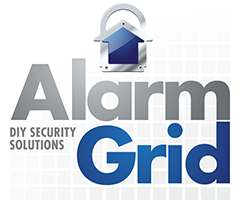18/2 Alarm Wire
Whether you're a professional installer or a DIY user, you might want to keep some 18-2 wire around for your alarm system wiring tasks. This wire type is some of the most frequently used with alarm system. It is perfect for common applications like connecting a panel to a plug-in transformer and for connecting hardwired sensors that use two-wire connections. In fact, we consider 18-2 wire to be the go-to option for most situations involving alarm systems.
When a wire is labeled as 18-2, it means that it is 18-gauge thickness (AWG) with 2-conductors (inner wires). You can generally swap out 18-gauge wire with slightly thicker or thinner wire. If you need a longer wire run, you might use the thicker 16-gauge wire. If you want a thinner wire that is easier for making connections, you might use 22-gauge wire. But we find that 18 AWG wire generally offers the perfect balance. If you aren't really sure of which thickness to get, then you really can't go wrong with 18-gauge.
There are many situations that warrant the use of 18-gauge wire. Some examples include running hardwired sensors to the panel, connecting alarm system transformers and wiring sirens. The 22-gauge option is also commonly used, and some users may prefer that thickness. They may find that the thinner wires are easier to connect. But 18-gauge can be better-suited for applications involving electrical current. And since it is so versatile in general, it is always good to keep around.
The 2-conductor portion of the name identifies that there are two smaller wires inside the larger cable. This is ideal for two-wire applications. Keep in mind though that some equipment will require four-wire connections. A general rule is that non-powered security sensors like door and window contacts will use two-wire connections. But powered sensors will usually need the extra wiring of a four-wire connection. A good example are hardwired motion sensors, which use two wires for data and two wires for power. For those sensors, you might want to use four-conductor wire. You can also double-up on your 18-2 wire, but you will want to be careful not to mix-up the coloring.
Alarm Grid offers stranded cabling as opposed to solid core cabling. Stranded cabling is easier to cut, splice and bend, making it easier for DIY users to work with. Professional installers also tend to prefer stranded wiring when working with alarm systems, as it is just better all around. We offer stranded wiring from Genesis, a company owned and operated by Resideo (formerly Honeywell). Our wiring uses a high-quality copper material that is perfect for transmitting data and power.



